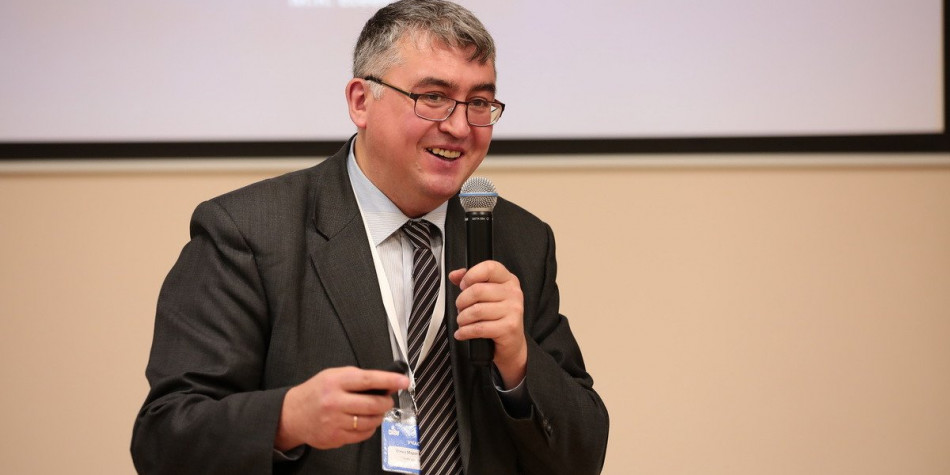
"The Arctic region is a source of a significant amount of minerals and bioresources. But despite the huge potential, the regions of the Russian Arctic are far from the leaders in innovation activity. There are clearly not enough advanced development tools here. The important tasks of the REC "Russian Arctic: New Materials, Technologies and research Methods", created on the basis of the Northern Arctic Federal University named after M.V. Lomonosov, are precisely the accelerated introduction of research and development results into the real sector of the economy, the implementation of import substitution projects.
This is achieved thanks to the close cooperation of scientific and educational institutions with companies. The REC consists of 52 participants: 15 universities, 10 scientific organizations, 6 non-profit organizations, including 3 industrial clusters and 21 enterprises of the real sector of the economy that conduct their economic activities in the Arctic.
REC implements a program of activities in five main areas: shipbuilding and marine Arctic technology; development of high-tech industries in the Arctic (mining and processing of minerals, synthesis of new materials); human activity in the Arctic; Arctic bioresources;
The Northern Sea Route and the connectivity of the Arctic territories.
In 2022, more than 50 scientific and technological projects and events were carried out in these areas at the center. Here are some examples.
Creation of a water treatment and closed water use system for Severalmaz JSC
The project is aimed at creating a high-tech system of water treatment and closed water use with the production of waste in the form of a marketable product by
modernization of the water management of the processing plant of Severalmaz JSC.
The modernization will allow creating a closed water use system and using saponite as a modifier that improves the physical and chemical properties of concrete. Also, the use of saponite-containing technogenic waste as a component of building materials will be aimed at expanding the list of import-substituting products in the construction industry. The total amount of financial support for the project during the implementation period is 1.17 billion rubles, of which 0.910 billion rubles are funds from the industrial partner, 0.26 billion rubles. – grant funds (the project was declared the winner of the competition within the framework of the 218 decree of the Government of the Russian Federation, which promotes the development of cooperation between Russian educational institutions of higher education, state scientific institutions and organizations of the real sector of the economy in order to implement complex projects to create high-tech industries).
The project on reproduction of aquaculture on the basis of SAFU On the basis of SAFU named after M.V. Lomonosov, a full cycle is being created for the production and scientific research of its own feed recipes. The main task of the center is the cultivation of aquaculture in the North of Russia. This is the first comprehensive center in the country that affects all areas of aquaculture: formulation development and feed production, aquaculture cultivation, comprehensive study of aquaculture and fish diseases,
training of personnel for the industry.
The Aquaculture Development Center includes a feed production workshop with a design capacity of 500 tons per year. Russian equipment is installed in the workshop. It is planned to produce feed fractions from 1 to 8 mm, in the future it is possible to produce feed of the smallest fractions. The tests will take place in the swimming pool complex of the center for the study of feed for aquaculture.
A full-fledged project to create its own recipe within the framework of import substitution and ensuring food security of the country was initiated by the REC "Russian Arctic" in 2022 with the support of the government of the Arkhangelsk region. The M.I. Kalinin Fishing Collective Farm and INARKTIKA PJSC are contributing to the implementation of the initiative. Industrial partners interested in developing domestic feed products for aquaculture are ready provide testing facilities for conducting experiments and further determining the optimal composition of feed. The effectiveness of feed will be studied with the help of advanced developments of the scientists of SAFU – machine learning algorithms and neural networks.
In addition, the REC Competence Development Center has implemented 2 additional professional training programs in the direction of "Aquaculture":
"Industrial aquaculture", "Modern technologies of industrial aquaculture of salmon fish".
The creation of a seed center together with the Arkhangelsk Pulp and Paper Mill, a joint project of the REC and the Arkhangelsk Pulp and Paper Mill provides for the creation of a seed center for the cultivation of 9 million seedlings of coniferous plants per year. Such volumes of planting material with a closed root system will allow you to completely
close the needs of the industrial giant and its partners for reforestation after harvesting on leased plots.
In 2022, an experimental batch of biodegradable cassettes of various compositions was manufactured and tested in the conditions of laboratory cultivation of planting material, samples of the substrate with peat, activated sludge (raw materials of the Arkhangelsk Pulp and paper Mill) for 16 plus trees of European spruce were made, DNA studies were carried out and genetic passports for plus trees were obtained, the species belonging of phytopathogens was established, the technology of clonal micro-propagation of hardwoods (birch, aspen) was worked out. Arkhangelsk Pulp and Paper Mill has started the construction of a forest seed (breeding and seed) nursery. The administrative and laboratory building has been put into operation.
Development of a model of a nuclear decay energy converter into electricity, a participant of the REC – MEPhI – developed a model of a portable radioisotope a thermophotoelectric electric generator (RTG), a converter of nuclear decay energy into electricity. RITEG will be used for energy supply of infrastructure facilities of the NSR."


